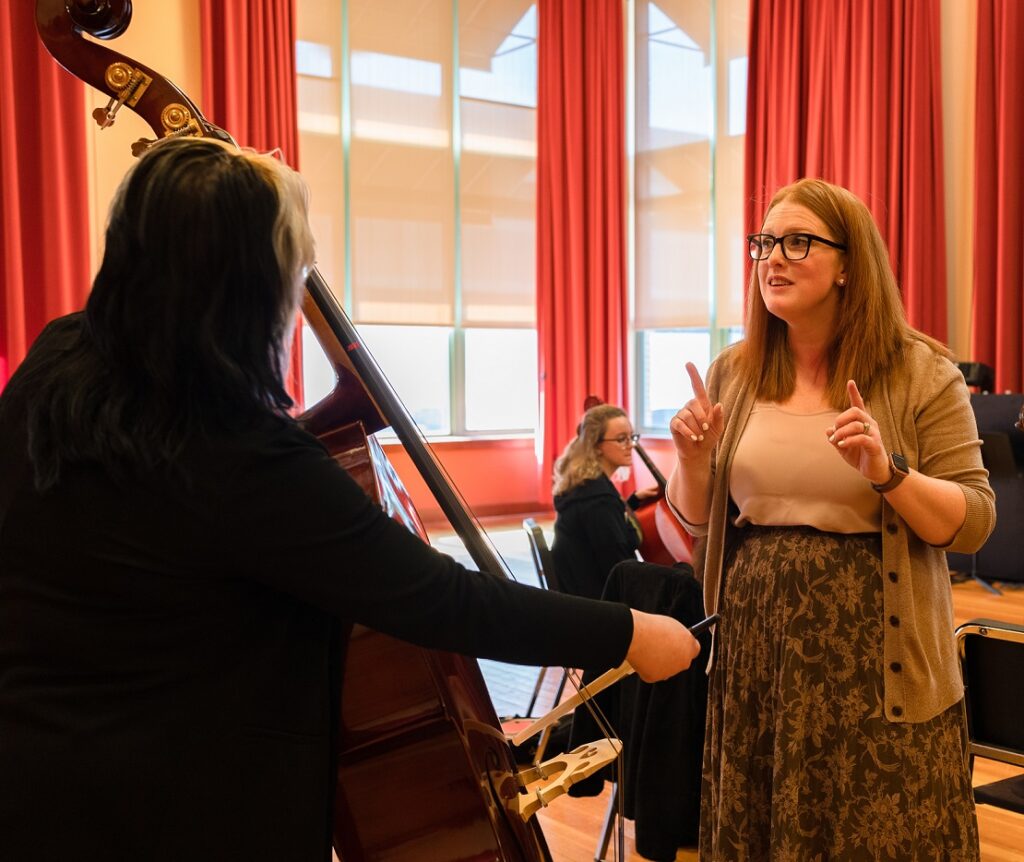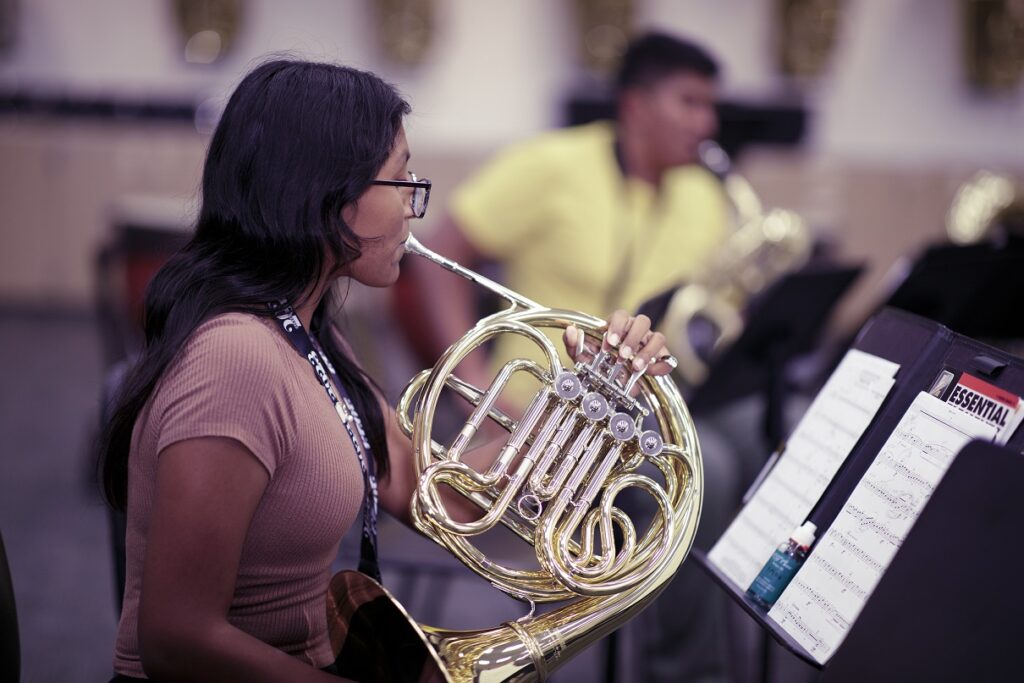Student Teaching 101: A Guide to Success
Step into your student teaching role fully prepared with this all-encompassing guide of practical tips and a handy checklist to help you thrive in the classroom and beyond.
Student teaching can be a transformative time — it’s literally the last stop after at least 16 years of schooling before you’re trusted with the reins (or in some cases, where the reins are removed!) to begin teaching.
However, as the old adage goes, you don’t know what you don’t know. Listed below are some tips for student teachers (and those who host them) to get the most out of their experience.
Don’t Be Afraid to Test Things Out
Some of the best cooperating teachers I know have often told their student teachers the same thing: Try things out with the group in front of you. If you screw something up, you get to leave in a few weeks, and they clean up any messes!
Student teaching is truly the time to dig in, get out of your comfort zone and expand your teaching toolbox. Try one new thing every rehearsal, whether it’s an icebreaker, rehearsal technique or even something with your conducting. Keep what works and decide whether the things that don’t work either need refinement or just need to go.

Frame Your Questions Tactfully
You won’t always agree with your cooperating teacher, and that’s perfectly fine. However, it’s essential to handle disagreements diplomatically. Instead of outright dismissing their ideas, ask open-ended questions to better understand their methods. This approach not only shows your willingness to learn but also keeps the lines of communication open.\
Often, our sense of self becomes so important that we must stand our ground on every single thought. Keep in mind that the statements and actions from your cooperating teacher may be but a single sentence, but they come with years of experience.
Consider the following dialogue options:
- Prompt A
- Co-op Teacher: “I think kids need to learn and master their scales before we even consider putting a piece in front of them.”
- Student Teacher: “I don’t agree. Let’s get a piece in front of them soon so they are more encouraged to learn these scales.”
- Prompt B
- Co-op Teacher: “I think kids need to learn and master their scales before we even consider putting a piece in front of them.”
- Student Teacher: “That’s interesting. I never thought about building up those skills; I often just dove right in. Could you walk me through the process of what the timeline for this might be?”
Both student teachers probably think the same thing, but prompt B puts the ego in check a little bit. Student Teacher B is interested in this process and wants to learn more. Student Teacher A immediately dismisses the concept. Who would you rather work with?

Maintain Professionalism and Manage Relationships
Maintaining professionalism goes beyond your interactions with your cooperating teacher; it also encompasses your relationships with students and parents. Communities are closely knit, and word travels fast. Whether it’s your behavior, communication style or attitude, any misstep can damage your reputation — sometimes irreversibly. Therefore, always act respectfully and professionally to safeguard your standing within the community.
Sometimes, especially if you’re younger than your cooperating teacher, students and parents might feel more comfortable confiding in you. They may even go as far as to express a preference for your leadership, citing a better rapport with someone closer to their own age. While flattering, such comments can be a slippery slope.
To manage this situation effectively, it’s important to align yourself with your cooperating teacher rather than compete for popularity. If a parent or student praises your approach over that of your cooperating teacher, it’s wise to have a pre-planned response to defuse the situation while preserving the team dynamic. For instance, you could say, “I appreciate the compliment. Mr. Stinson and I work hard as a team to ensure that the students have a great experience.”
If the parent persists, simply reiterate your original statement. This keeps the focus on teamwork and the collective goals of the educational experience, rather than individual egos.
Build Your Own Rapport — Don’t Copy Others
Building rapport takes time. While it’s tempting to imitate your cooperating teacher’s style, it’s crucial to forge your own relationship with the students. Authenticity is key; let your unique teaching style shine through. And if you don’t have a unique style, this is the time to build it!
When you observe your cooperating teacher, you are observing years of skill, experience and refinement. You are also seeing established rapport amongst the teacher and students. Sometimes this may look like friendly banter or jokes. Although you may know that you have the skills to lead a rehearsal, the students need time to warm up to someone new. You are a visitor, but you are also able to develop your own appropriate rapport with the ensemble.
Copying speech patterns, phrases or even jokes from your cooperating teacher may seem inauthentic to the students, and in worst case scenarios, may even insult them! Let the rapport unfold itself, and don’t force it.

Ask a Lot of Questions
Time questions appropriately. Keep a journal and write down any questions you have. Then, consider speaking to your cooperating teacher about setting aside a weekly time to go over some items. Remember, keep your ego in check.
Many of us are just itching to get out and teach, and after 16+ years of school, we’re ready. But we still must be prepared to be schooled. Ask your questions, write down the responses, and take the answers to heart.
If You Want to Experience Something, You May Have to Ask
We don’t know what we don’t know — I go back to this again and again because it’s so true. If there are items that you think you would benefit from during your student teaching experience, don’t hesitate to speak up. I believe that a student teacher should be able to conduct at least one piece at a concert, but there are other directors who either disagree or don’t put this out there until the student teacher asks.
Advocate for yourself but curb your expectations. Most student teachers would probably not be entrusted with taking on half the program for a major festival, but being involved with a home concert is a reasonable ask.

Embrace the System
For nearly my entire educational life, people have complained about the “new” way to do math, and how kids can get the right answer but they don’t get full credit if they don’t use the correct process. This is true not only for “new” math, but for every classroom, household, workplace and business. There is always some sort of structure or system in place.
We teach kids how to get the correct answer, but we are also teaching them about systems. If a student wants to get into coding, they will have to understand the ins and outs of HTML, CSS and other coding languages. Schools thrive on systems, too, from the school board and district office all the way to the classrooms. Yes, systems can be frustrating and even restrictive at some points, but as a student teacher, you must learn about this system. Even if the process is not the same at every school, you will gain experience in procedures, chains of command and administrative tasks that are common at most schools.
By the end of your student teaching experience, consider this short checklist:
- Understand safety procedures, including but not limited to fire drills, lockdowns and other emergency drills.
- Complete a bus request.
- Complete a facility request.
- Initiate at least one parent contact, positive or constructive.
- Assist with planning for a field trip.
- Be introduced/introduce yourself to key school personnel, including but not limited to building administration, administrative assistants, deans, custodians and other teachers.
- Write a thank you note to most of the people above.
- Attend one music parent meeting, if applicable.
This is not a comprehensive list, but it should get you started with the non-classroom teaching items.

There Is Always Work to Do
Hard reality: Your future employer may not care how good your groups sound. They will care if you are late in answering emails, not submitting your bus requests, and unaware of typical school procedures. Sit down with your cooperating teacher and hammer out one or two of these a week at the beginning of your assignment. Use the list above to start.
Once you’re ready, see what you can take off their plate. Your first job’s procedures may differ, but you’ll at least be aware of how a field trip request works, what procedures are in place to background check chaperones for a trip, and request space for a concert.
Are you done with attendance, copying, rehearsal planning and score study? Take a look at some other pieces. Clean up an area of the rehearsal room, tighten music stands, practice your secondary instruments, work on your choral accompanying skills or practice your interviewing skills. There is always something to do, and now is the best time to do it.
Ultimately, you’re looking for abundant experiences and a letter of recommendation by the end of your student-teaching assignment. Get the work done so your cooperating teacher has plenty of examples to draw from when writing about you.
Leave on a Good Note
The great student teachers I have had formed a rapport with the students that was their own, and were not afraid to make mistakes in front of the ensemble. They also thanked everyone and left on a great note. They showed up on time every day, did not ask for special treatment, and got the job done. We’re big on writing notes in my program — every kid gets a note of encouragement or recognition on their program before every concert. Many of my student teachers took this to the next level by writing an individual thank you note to every kid in the program. A lot of work? Absolutely. But a great lesson in appreciation and going the extra mile.
Student teaching is like a testing ground — a place where you can stretch your wings, make mistakes and figure out what kind of educator you want to be. It may be a short chapter in your life, but it’s one that can shape your career in big ways. The advice and to-do list laid out in this article won’t cover everything, but they give you a solid starting point. Keep in mind that being an educator means you’re always learning. Your time as a student teacher is just the beginning of a long and rewarding journey.
















